
Bronze in a Week with Malvern St James Girls’ School

BY: Amy Lee
10 Jun 2022
In this blog post we’re highlighting the wonderful work at Malvern St James Girls’ School who deliver Bronze in a week during their summer term. Head of Drama and Expressive Arts, Juliet Fisher, explains how they tackle each part of the award, talks about their collaboration with Vamos Theatre Company and offers some top tips for delivering the Award in a week!
At Malvern St James Girls’ School we have been running the Bronze Arts Award for many years. Blessed with small groups and a supportive Senior Management Team, our Year 7 & 8 students come off timetable for a week in the summer term and spend five full days embracing multi-disciplinary arts experiences, with the focus on achieving their Bronze awards.
The key to success is forward thinking and detailed organisation. We divide the participants into four groups and then create a timetable for the week which allows each group to fulfil all four parts of the Bronze award. A trained adviser will be present for at least part of the session, with the normal class teacher covering, as well as the visiting practitioner. We have Sixth formers or staff taking photographs in workshops, providing evidence for the students’ folders. They upload to the Arts Week Group Folders.
For Part A – Explore the arts as a participant: the week presents at least two workshops in each of the arts subjects that we teach at the school, Music, Drama, Art and Dance, allowing our young learners to try out new skills in areas in which they feel familiar. We invite professionals into the school, or use some of our own staff who are able to offer skills beyond the classroom curriculum. The range inspires learners in different ways, with some finding the Bollywood dancing totally stimulating, whilst others enjoy the calmness of a jewellery workshop. Singing, contemporary dance and art workshops add variation to the programme. Stage fighting is always a great hit, as is how to use lighting and sound on the stage, whilst the Samba workshop brings energy and a sense of community with the intense focus on succeeding in joint drumming tasks as well as lifting the roof off our large school hall with the volume of the drums and the laughter!
We welcome Vamos Theatre Company, who bring with them their amazing masks for a theatre workshop. We have created a partnership with Vamos, who are local to us, and they always pitch the work at exactly the right level for the age and experience of the groups.
 A favourite workshop is photography, where all our young people learn how to take technically correct, creative and beautiful photographs, using their phones. We find other staff members keen to tag along in these workshops, excited at the prospect of developing their own skills. We finish the week with a photography competition, which a large number choose to enter. This is judged by the workshop leader, a professional photographer who is always wowed by the excellent standard of photos. Within the timetable we allow for portfolio work, giving each group at least an hour each day to upload photos and fill in their portfolios. Far from being a chore, this is also a fun and creative time, with the portfolios becoming a work of art in their own right.
A favourite workshop is photography, where all our young people learn how to take technically correct, creative and beautiful photographs, using their phones. We find other staff members keen to tag along in these workshops, excited at the prospect of developing their own skills. We finish the week with a photography competition, which a large number choose to enter. This is judged by the workshop leader, a professional photographer who is always wowed by the excellent standard of photos. Within the timetable we allow for portfolio work, giving each group at least an hour each day to upload photos and fill in their portfolios. Far from being a chore, this is also a fun and creative time, with the portfolios becoming a work of art in their own right.
For Part B – Explore the arts as an audience member: we take a trip, finding that this is an excellent way to introduce the cohort to an art gallery. Numerous galleries and museums offer workshops as part of the day, and this is a great way of drawing the students in. This year we went to ‘Nature in Art’. The feedback in the portfolios from the trip is interesting and affirms the importance of the workshop for creating focus and interest in the exhibits, and the art work they bring back to school is often used as an evidence of their own creativity for the marking of Bronze Award.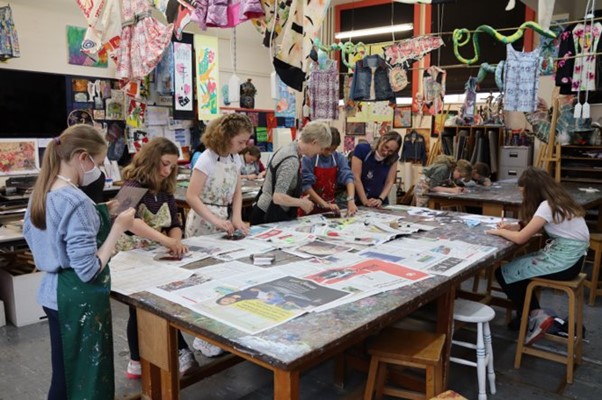
We have done Part C – Arts inspiration: in one of two ways, depending on the cohort and the staffing. One way has been to research their Arts Inspiration during the week, working on it during the day and for homework, and handing it in at the end of the week with rest of the portfolio. This means that the students have to work hard to finish, but with the right guidance from the advisers it is entirely possible. The other approach has been setting Part C as a research project for homework in one of the arts subject areas for the half term leading up to the week. The big advantage to this is to the staff, as it can be marked beforehand and completed before the week begins. Our students' most recent Arts Inspiration choices ranged from Mozart to Twenty One Pilots, and everything in between – set as a research project in music.
For Part D – Arts skills share – passing on arts skills to others: the timetable allocates slots for both planning and sharing. Students wish to share a range of skills, which vary from those newly learnt during the week to existing skills, such as the flautist, illustrator or ballet dancer. Through the arts weeks we have discovered a lot about individuals and gained a real insight into their artistic fields, often when we thought we already knew what they could do. Leading on from these learnings, we have picked up students to play in the school orchestra, be in the school musical (or help with the set), or sing in the choir from this section. It has genuinely changed the arts pathway for many of our students.
At the end of the week, one of our team puts together a montage of the whole experience, with photos or video clips and music, and we play this back to the cohort as a celebration. The atmosphere is electric, with positive reactions and excitement from everyone. This video is then played to the rest of the school in assembly, where we also celebrate all that has been achieved.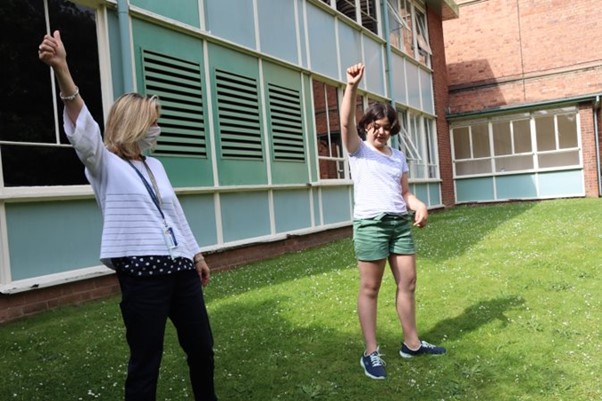
Top tips:
Advisers: The more there are the easier it is. We have six. These don’t always have to be teaching staff. We have the School Librarian and an Administrator (a creative in her own right) as part of the team, which gives us more flexibility.
Portfolios: we use the Arts Logs available from the Arts Award Online Shop, but also supplement these with our own handouts to support the process. The students know what they’ve got to do over the week as they work through the book, and it becomes an excellent tool for independent learning.
Timetable: – this is what makes the week work: Staffing, rooms, individual timetabling for those with SEND, timings. Make sure everyone has access to the timetable – the students, the staff, reception, Heads of Year, Senior Management. It is the way you keep track of all that’s going on and show off the amazing work being done.
Handing in portfolios: make sure they ALL come in on the Friday afternoon. You can pick up on anything missing in arts lessons in the following week. We get them to tick a list of completed items so we can easily check what needs finishing later. Occasionally we have worked with students in September to complete sections within portfolios.
Balance: don’t plan anything after the end of the school day and don’t timetable the lead adviser into specific sessions. This allows for time to visit the different workshops and also to field problems. When the Samba drummer fell off his bicycle the evening before his workshops, one of the students hurt her ankle, the bus was delayed when going on the trip, there are always issues which need dealing with and there needs to be someone to co-ordinate.
DIBNY (‘Do it better next year’) - At the end of the week do plan a get together with the team of advisers and anyone who has helped for a DIBNY and a flop. Sometimes a cup of tea and a muffin will be needed, other times, well, that’s up to you…
Build in time to mark the folders: We try to allocate some time on INSET day at the beginning of the following term to work as a team and complete the marking. It helps if the lead advisor has marked some over the summer in order to follow the Centre style and have a template for everyone to look at.
Enjoy it! - Doing Bronze Arts Award is the best week of the whole year for many of the students, and there really is something for everybody. Being relaxed and making the most of the fun can support relationships and enable the students to grow. The introduction to new aspects of the Arts is exciting and stimulating, and for some, will provide lifelong memories.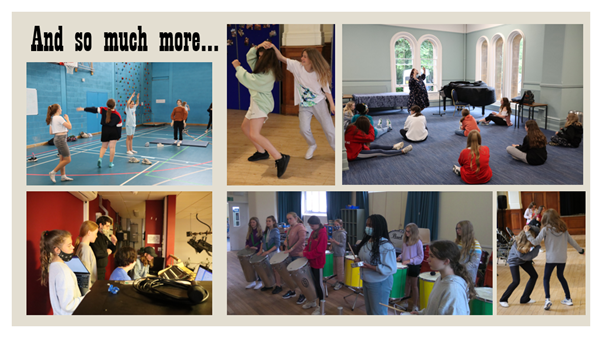
Related posts
BY: Guest Writer
BY: Alan Lynch

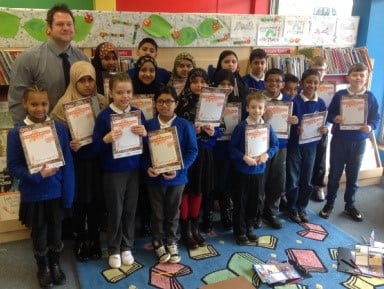
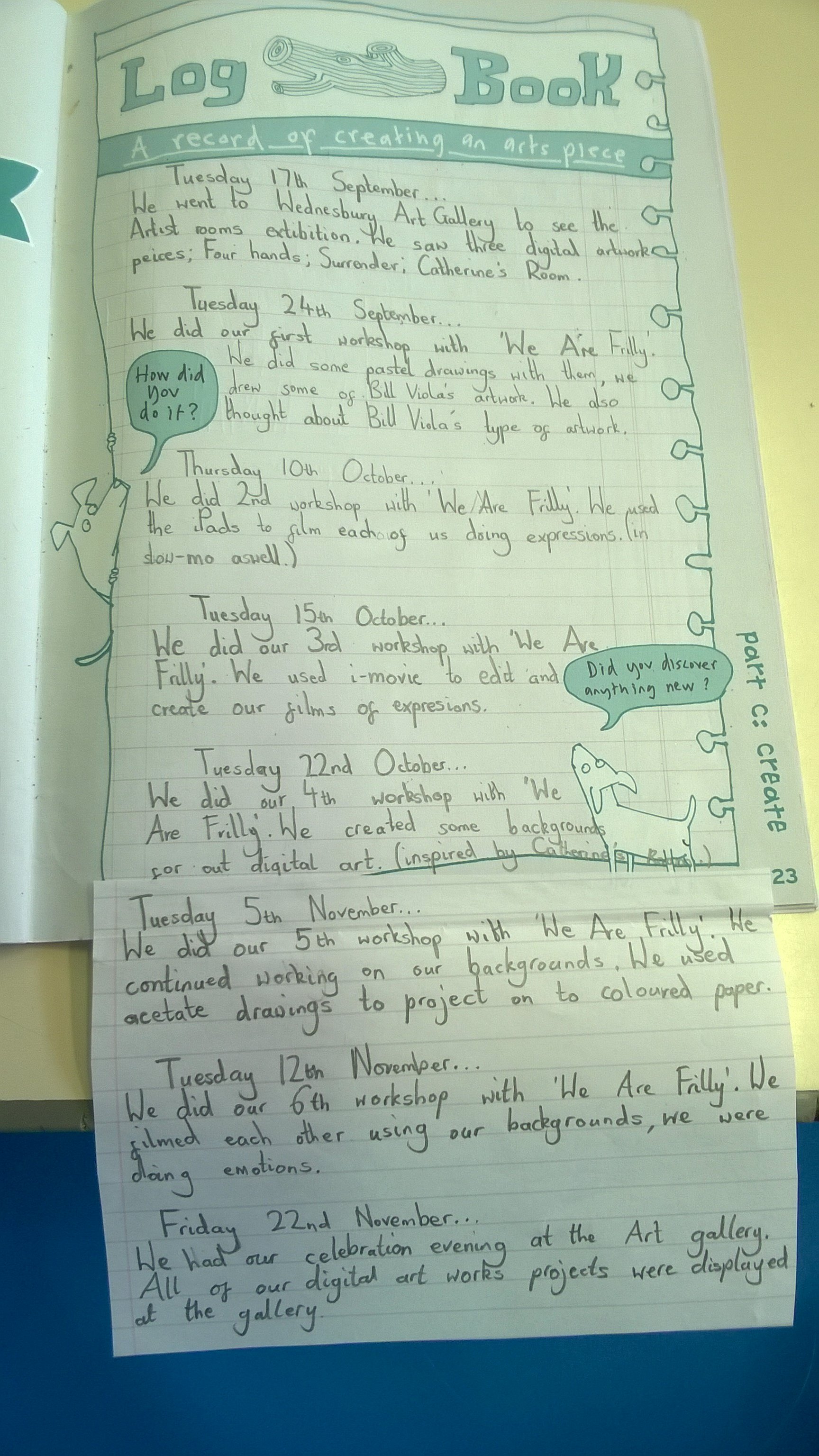
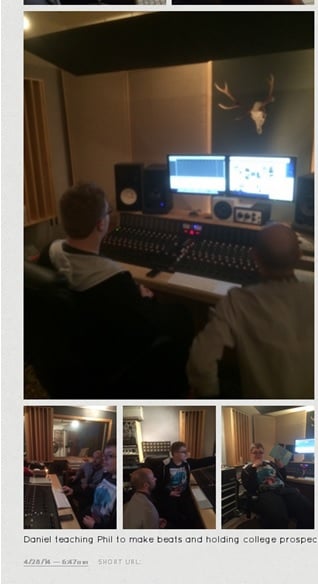
Comments & Replies